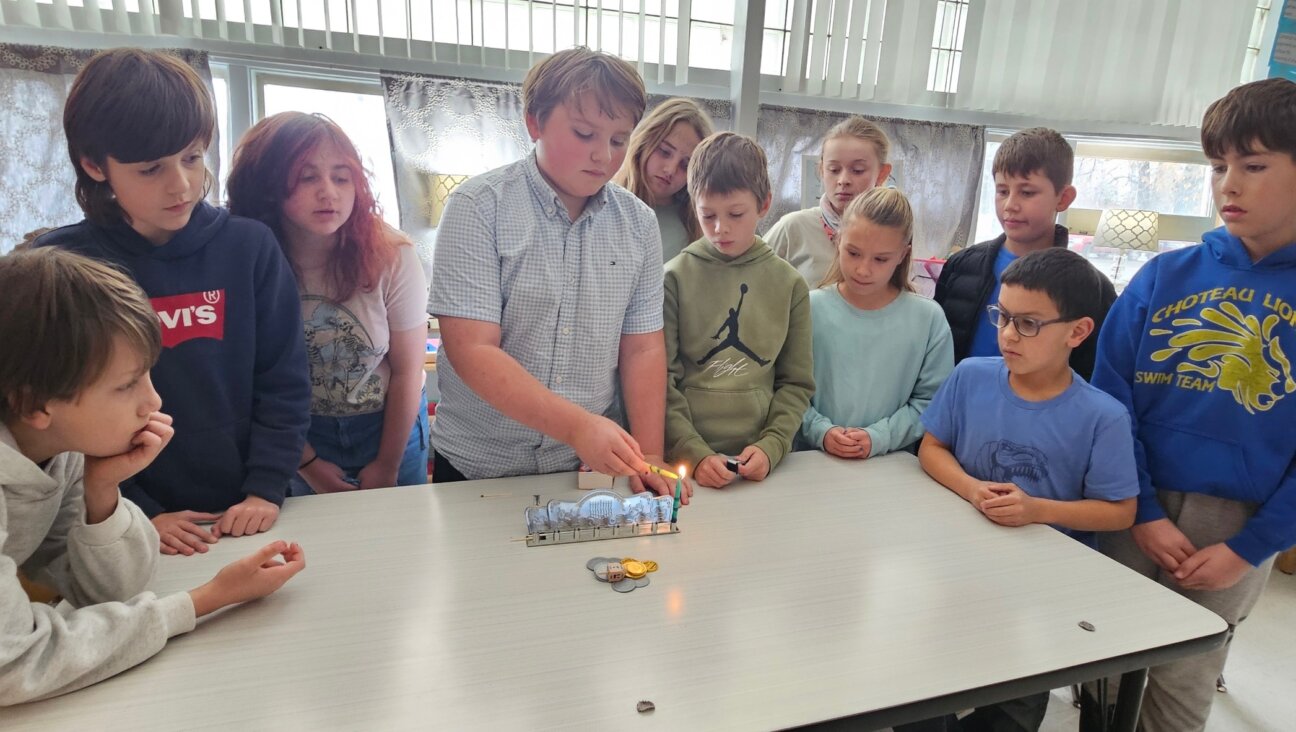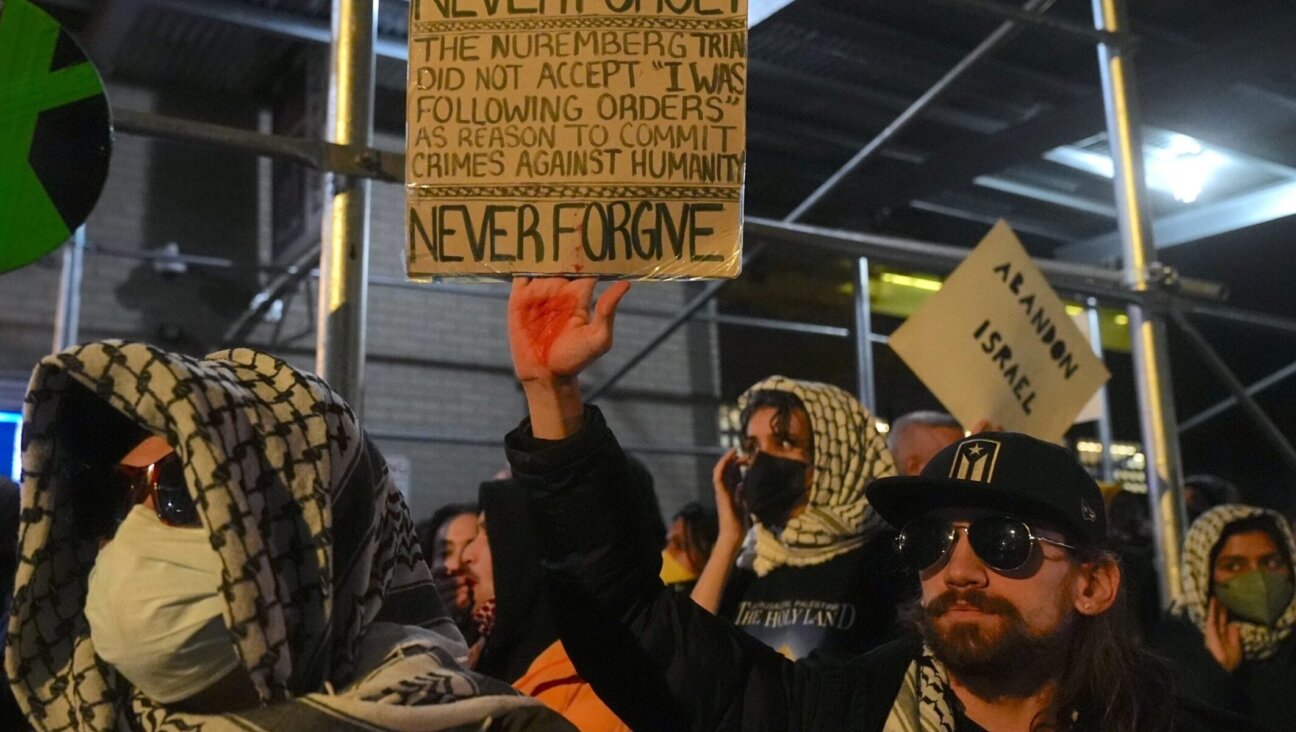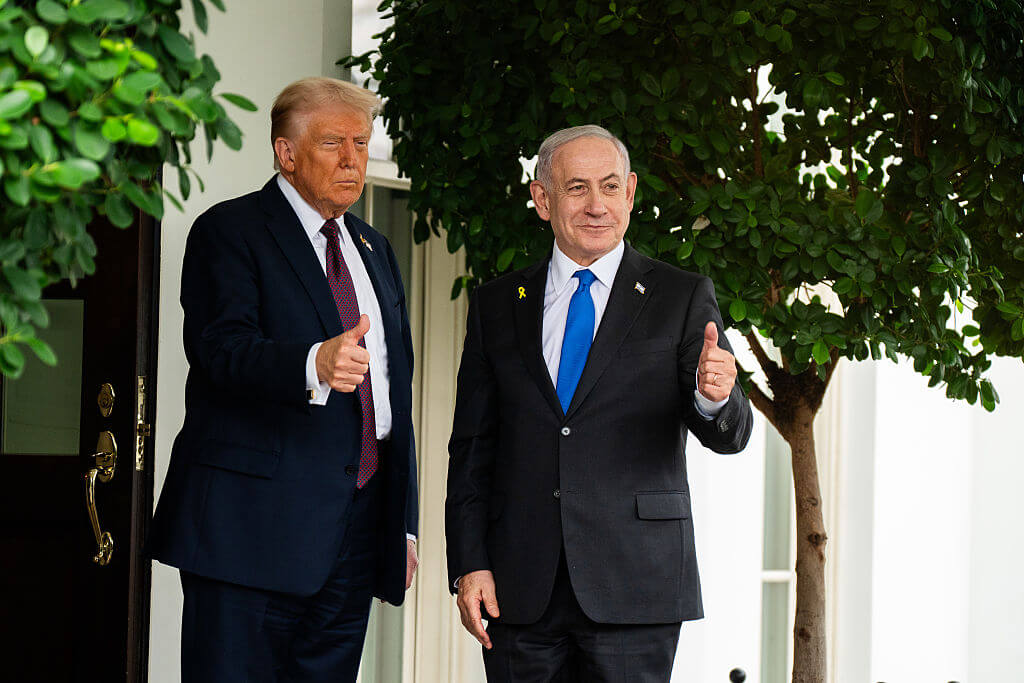Hazards of Dating While Jewish in Berlin

Dater: Steven Blum has found dating in Berlin a perplexing endeavor. Image by Courtesy of Steven Blum
‘So you’re Jewish, right?” Tobias asked while we were watching an episode of “Real Housewives” on his couch.
“Yup,” I responded.
Even though this was our first date after meeting in a yoga class — he was the flexible, relaxed one; I was schvitzing and falling — I let a few more details slip because I was feeling raw and uninhibited.
“My grandparents are actually from Germany,” I said.
“Oh my God, what happened here was so awful,” he said, dramatically elongating the “aw.” “I’m so sorry, on behalf of Germany.”
“I mean, it wasn’t you,” I said, trying to sound conciliatory. “Besides, I can’t accept apologies. I wasn’t alive back then.”
We turned our eyes back to the television and watched as one of the “real housewives” berated her maid. “My grandfather was a Nazi. Pretty high up, too,” Tobias said.
“Oh.”
“Sorry, that was more like a 15th date admission! I’m such a spaz.”
“No, that’s fine. I can take it,” I said, lying.
I told Tobias I needed to visit the little boy’s room, and I went to look at myself in the mirror. “This is crazy,” I mouthed to my reflection. I wondered if Tobias would show me pictures of gramps next. I envisioned him rotting away in a Soviet prison.
When I sat back on the couch, it seemed as if Tobias was so wrapped up in his own traumatic admission that he couldn’t even look at me. I was no longer the boy he talked to about New Age philosophy after yoga class — I was an emotional trigger.
When he looked back at me to laugh about the shenanigans of one housewife, I found myself thinking there’s something devilish, almost sinister, about his grin. Oh my God, I thought, why did we have to have the Nazi talk already?
For American Jews in Berlin, dating can feel like an endurance challenge, the object of which is to be comfortable and open enough to handle the most naive and arbitrary questions, ambiguous silences and disturbing admissions of familial guilt.
But more than anything, dating in Berlin makes one feel like a perennial spokesJew. At times I’ve offered sage counsel to men troubled by their family’s Nazi history, or attempted to explain why Jews circumcise. Other dates have been awkward because of lack of cultural awareness or sensitivity: I’ve had dates call me “a little Woody Allen,” or wonder why it’s so bad to take their sexy pics in front of the Holocaust memorial. (That’s something of a trend here; a lot of guys take off their shirts at Berlin’s Memorial to the Murdered Jews of Europe and then post the photos on Grindr, a gay-dating app. Why? It’s still a mystery to me. Is it cultural insensitivity? An attempt to look pensive and aware of history? Who knows.)
Later in the week, Tobias invited me to see the band Iron and Wine perform at a warehouse in Kreuzberg, a trendy district in Berlin. I tried to appear as if I were the same silly, self-deprecating guy he met in yoga class, not a dreary reminder of Germany’s sordid past. I wore a polka-dot shirt and cheered wildly for the low-key folk band.
After the show, on a gum-stained bridge clogged with partygoers, Tobias casually asked if I could buy him a drink at a nearby convenience store. I reached into my pocket and fumbled around for a coin with some heft to it, but all I could find were the lightweight copper 1 cent and 5 cent pieces. I told him I didn’t have the cash. He gave me a look.
“You’re not a cheap Jew, though, right?” he asked. Then he laughed.
“That’s bullshit,” I responded, but I don’t think he heard me over the roar of a nearby train.
The next day, I ignored Tobias’s phone call. I decided I’d rather be single than imagine what my ancestors would think of me dating an anti-Semitic German man. The fact that we were interested in the same New Age philosophy seemed like a cruel irony.
Surprisingly, though, the experience did not dissuade me from continuing to date German men. It’s embarrassing in retrospect, but a part of me reveled in being the spokesJew.
I enjoyed being both “unicorn” and cultural ambassador. I introduced one date to the nondubbed version of the TV show “The Nanny” (“What is this voice? Is this real?” he asked me, to my sheer delight). I told another about all the Tel Aviv electronic bands I adored. I even joked lightly about my Jewish upbringing to strangers who knew nothing of Jewfros or Hebrew schools.
The backdrop to many of these revealing and entertaining exchanges was a chintzy bar in Berlin’s gayborhood, appropriately named Heile Welt — Heal the World. Smokey and loud, Heile Welt was a raucous place, similar to the kind of gay bars you’d find in the United States.
This is where I first met Mischa, who is a big and boisterous presence in Berlin’s gay community and also happens to be a German Jew. A tour guide by day and a cabaret singer by night, Mischa picked me out in the bar instantly by yelling “another Jew!” He was surrounded by more than a few German men, all of whom turned in my direction at once.
“Are you from Tel Aviv?” one of the men asked me.
“No, Seattle.”
The man looked slightly disappointed by that answer.
“There are Jews in Seattle?”
“Well, there’s me!”
We shared an uncomfortable moment or two. Then Mischa gave me a big kiss on the lips.
“Mein kleine Jude,” he said, pinching my cheeks: my little Jew.
As the night wore down, Mischa told the bartender to play “Hava Nagila.” He grabbed my hands until we were both dancing the hora — gin and tonics in hand — with an Austrian, a Dutch guy, two Germans and a Brit. Someone kissed me on the cheek as the disc jockey performed the Herculean task of transitioning from “Hava Nagila” to the next song: Kylie Minogue’s “All the Lovers.”
Much later, I told a Jewish friend in Berlin about my experiences, and she laughed. “I know plenty of guys in Berlin who get laid for being Jewish,” she said. “Did you roll with it?”
I told her that I loved it at the time, but the experience ended up making me feel alienated. Sure, it felt affirming to embrace my Jewishness in front of non-Jews, but I couldn’t shake the sense that I was performing a role.
Either I was the spokesJew, easy to fetishize and exotic to behold, or I was a resented remnant from the past, haunting the lives of the troubled Germans whom I’d meet.
Chalk it up to adolescent thinking or to cold, hard denial: For whatever reason, I just hadn’t expected that the Jewish identity I treated so casually — even jokingly — in the United States would become such a burden in Germany.
After Tobias asked me if I was a cheap Jew, I tried to play it off lightly, as if I were dealing with the ironic anti-Semitism that sometimes pops up in the States. I considered my reaction carefully, not wanting to be one of those Jews who projects the past on today’s guiltless generation.
I wish I could go back in time and tell myself: “Screw that. Screw polite. There’s no excuse for anti-Semitism, especially in Germany.”
Steven Blum is a writer and editor in Berlin. He has written for Tablet magazine, The Jewish Transcript, The Stranger, Blackbook Magazine and the Seattle Post-Intelligencer.















